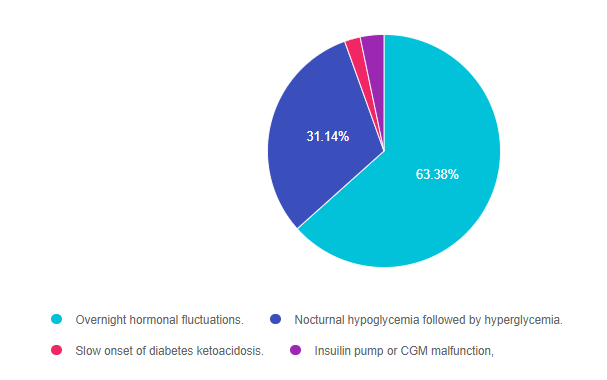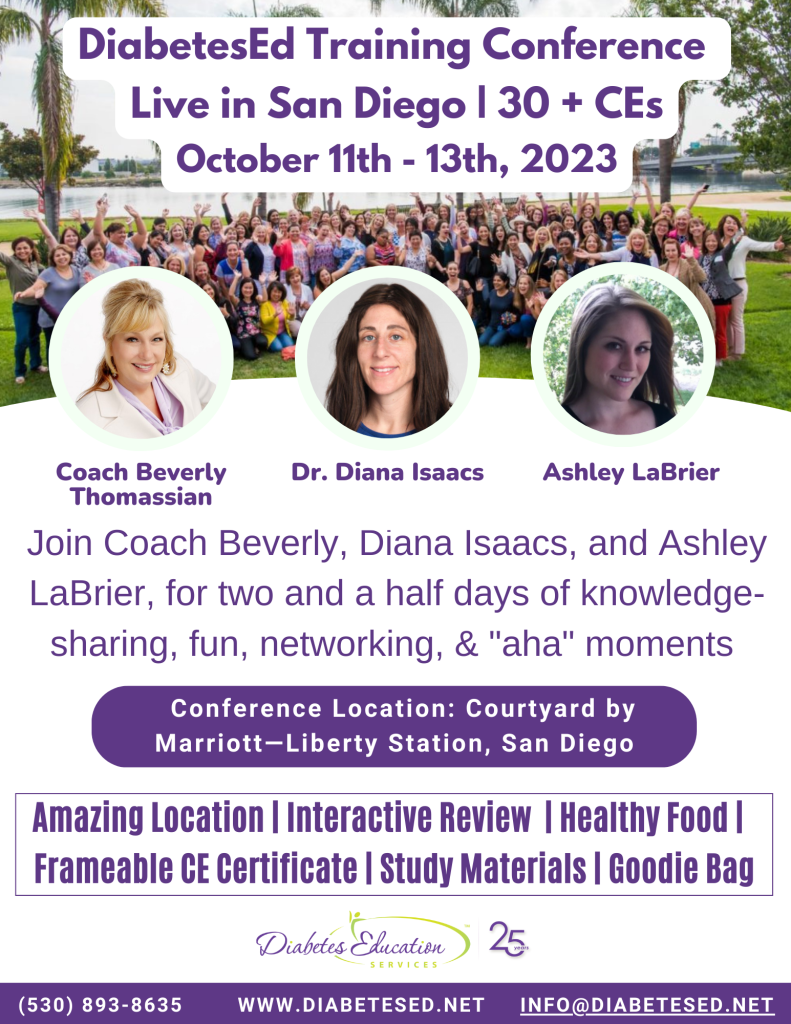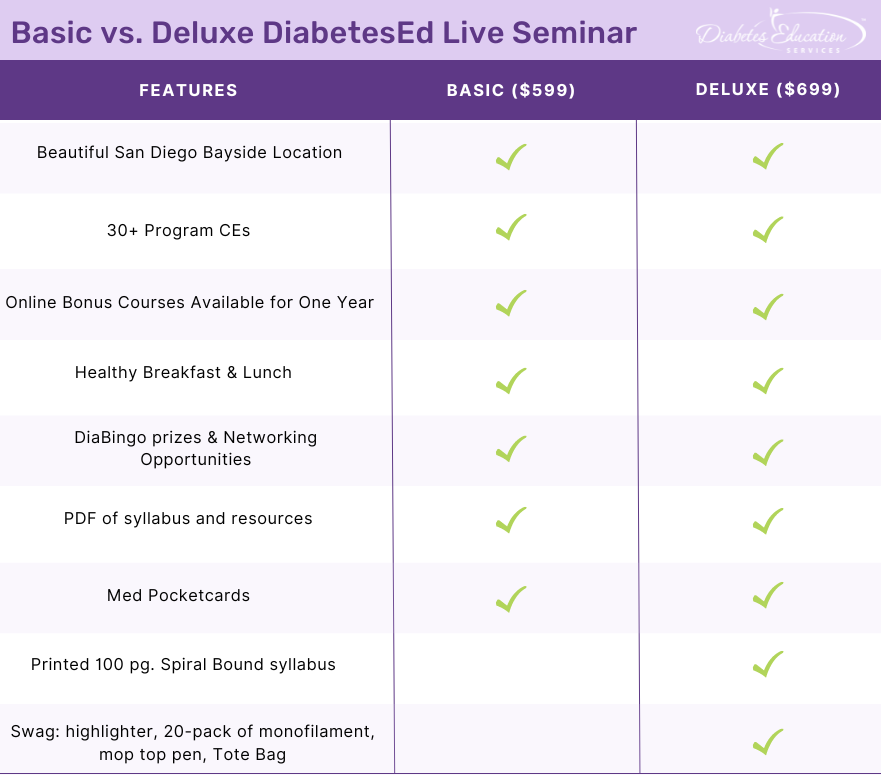
For last week’s practice question, we quizzed participants on the effects of nocturnal hyperglycemia. 63% of respondents chose the best answer. We want to clarify and share this important information, so you can pass it on to people living with diabetes and your colleagues, plus prepare for exam success!
Before we start though, if you don’t want any spoilers and haven’t tried the question yet, you can answer it below: Answer Question
Question: JR is 11 years old with type 1 diabetes and their parent shares their concern that the blood glucose seems to be rising overnight with morning hyperglycemia. The parent is worried that JR may be sneaking snacks in the night.
As a diabetes specialist, you know that this glucose rise is most likely due to:
Answer Choices:
- Overnight hormonal fluctuations.
- Nocturnal hypoglycemia followed by hyperglycemia.
- Slow onset of diabetes ketoacidosis.
- Insulin pump or CGM malfunction.

Getting to the Best Answer
If you are thinking about taking the certification exam, this practice test question will set you up for success. Test writers anticipate possible answers based on the details in the question. They will wave those “juicy answers” right under your nose. Your job is to weed through the particulars, pluck out the most important elements and choose the BEST answer.
Answer 1 is correct. 63.38% chose this answer. “Overnight hormonal fluctuations.” YES, this is the best answer. There is an increased release of counterregulatory and growth hormones during the night, that is especially noteworthy during the teen years. These hormones contribute to insulin resistance and can cause morning hyperglycemia, often referred to as the Dawn Phenomena. For this reason, basal insulin dosing and rates need ongoing adjustment to address this nocturnal insulin resistance.
Answer 2 is incorrect. 31.14% of you chose this answer. “Nocturnal hypoglycemia followed by hyperglycemia.” Even though this phenomena, referred to as Somogyi effect, could cause morning hyperglycemia, there is no information in the test question that indicates JR is experiencing lows over night. Symptoms of hypoglycemia during the night might include; morning headaches, night sweats, vivid dreams or waking up hungry.
Answer 3 is incorrect. About 2.19% of respondents chose this. “Slow onset of diabetes ketoacidosis.” Even though hyperglycemia is associated ketoacidosis, JR has no symptoms of ketoacidosis like lethargy, fruity breath, urine ketones or dehydration.
Finally, Answer 4 is incorrect. 3.29% chose this answer. “Insulin pump or CGM malfunction.” While pump malfunction can lead to hyperglycemia, there is no information contained in the test question that would lead us to believe that JR is using any diabetes technology.
We hope you appreciate this week’s rationale! Thank you so much for taking the time to answer our Question of the Week and participate in this fun learning activity!
Want to learn more about this practice question?
Join us LIVE in San Diego for our DiabetesEd Training Conference
October 11-13th, 2023

Two Registration Options

Join Coach Beverly and Team for two and a half days of knowledge-sharing, fun, networking, games with prizes, and “aha” moments in beautiful San Diego.
You don’t want to miss this one-of-a-kind learning opportunity. Get away from all those daily responsibilities and immerse yourself in a fun and intensive conference with plenty of networking opportunities.
Attendees will leave this conference with new tools and a more complete understanding of the latest advances in diabetes care, from medications to technology to Medical Nutrition Therapy!
Bring your colleagues and enjoy our friend discount.
Our team expertly translates the complex science of diabetes into understandable terms while keeping it real, practical, and fun.
Team of expert faculty includes:
- Diana Isaacs, PharmD, BCPS, BC-ADM, BCACP, CDCES – Educator of the Year, 2020
- Coach Beverly Thomassian, RN, MPH, CDCES, BC-ADM
- Ashley LaBrier, MS, RD, CDCES, Diabetes Program Coordinator
All hours earned count toward your CDCES Accreditation Information
Sign up for Diabetes Blog Bytes – we post one daily Blog Byte from Monday to Friday. And of course, Tuesday is our Question of the Week. It’s Informative and FREE! Sign up below!
The use of DES products does not guarantee the successful passage of the CDCES exam. CBDCE does not endorse any preparatory or review materials for the CDCES exam, except for those published by CBDCE.









